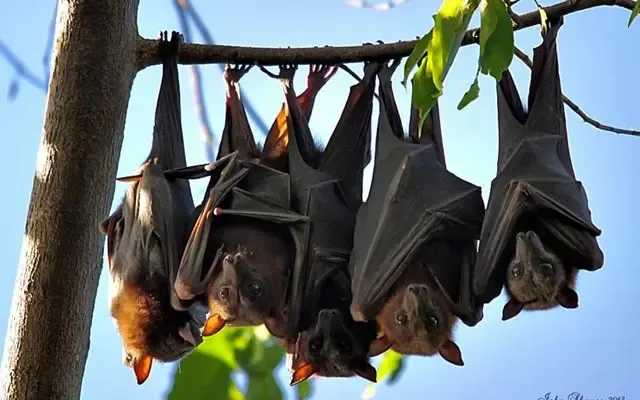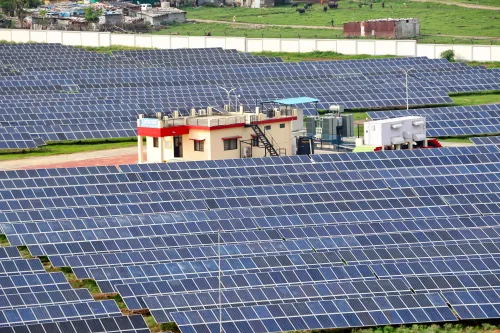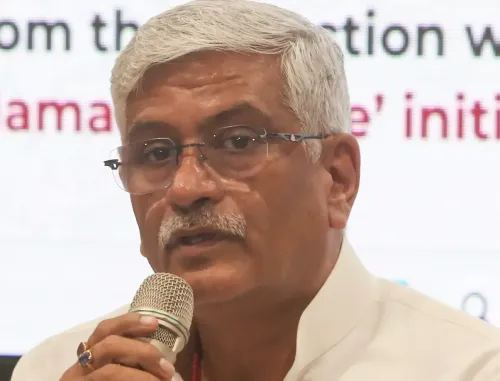Experts Warn of New Bat Coronavirus HKU5-CoV-2 Potentially Spreading to Humans Like Covid-19

Synopsis
Key Takeaways
- New bat coronavirus HKU5-CoV-2 can infect humans.
- Research led by Shi Zhengli of Wuhan Institute of Virology.
- Potential zoonotic spillover risks highlighted.
- Similarities to SARS-CoV-2 noted, but pandemic potential is questioned.
- Importance of reducing bat-human interactions emphasized.
New Delhi, Feb 22 (NationPress) The recently identified bat coronavirus, known as HKU5-CoV-2, has the potential to transmit to humans similarly to Covid-19, according to experts on Saturday, which has sparked new health concerns.
HKU5-CoV-2 was discovered by a research group of Chinese virologists led by Shi Zhengli, a prominent scientist at the Wuhan Institute of Virology in China. She is often referred to as 'Batwoman' due to her extensive studies on coronaviruses, particularly the SARS-CoV-2 virus that led to the devastating pandemic resulting in millions of fatalities.
This discovery has raised alarms regarding the risk of another zoonotic spillover. HKU5-CoV-2 is categorized under the merbecovirus subgenus, which includes the MERS-CoV virus responsible for the Middle East Respiratory Syndrome outbreak.
A few years back, Zhengli’s team identified the HKU lineage of coronaviruses in bats from Hong Kong, but those strains were not capable of infecting human cells.
In contrast, HKU5-CoV-2 can attach to human ACE-2 receptors and infect laboratory cell models of human lungs and intestines. It also has the capacity to bind to ACE-2 receptors in various mammals, indicating that it could potentially spread between animals and humans, as explained by Rajeev Jayadevan, Chairman of the Kerala State IMA Research Cell, to IANS.
The expert pointed out that researchers in Wuhan have not yet provided a comparison of HKU5-CoV-2 and SARS-CoV-2 regarding their ability to infect human cells.
However, Gautam Menon, Dean of Research at Ashoka University, mentioned that HKU5-CoV-2 does not appear to possess pandemic potential. “Based on current knowledge, this virus is unlikely to be a significant threat. While HKU5-CoV-2 shares intriguing similarities with Covid-19 and other coronaviruses that infect humans, this does not suffice to conclude it could spread among humans in a manner that might trigger a pandemic,” Menon stated to IANS.
He further noted that widespread exposure to the SARS-CoV-2 virus might offer immunity against the new bat coronavirus. “Given that a substantial portion of the global population has now been exposed to Covid-19, this may also provide protection against viruses like HKU5-CoV-2,” Menon emphasized, underlining the necessity for ongoing research in this field to prepare for any potential emergencies.
Jayadevan acknowledged the importance of studying viruses naturally found in bats, but also highlighted the inherent risks of conducting such research in labs. “Without proper biosecurity measures, there exists a risk of accidental spillover to humans. To mitigate these risks, many laboratories investigating high-risk pathogens adhere to stringent Biosafety Level 4 (BSL-4) protocols,” he explained.
He stressed the importance of reducing interactions between bats and humans. “Viruses are known to recombine, producing new variants with enhanced capabilities. This study serves as a reminder that viruses residing in other animals pose a continued threat for future pandemics in humans, and minimizing bat-human interactions is one way to decrease the risk of spillover events,” Jayadevan concluded.










